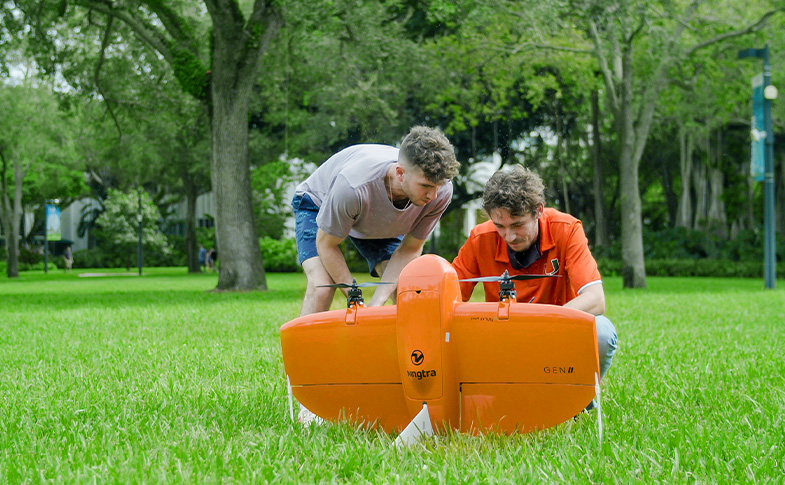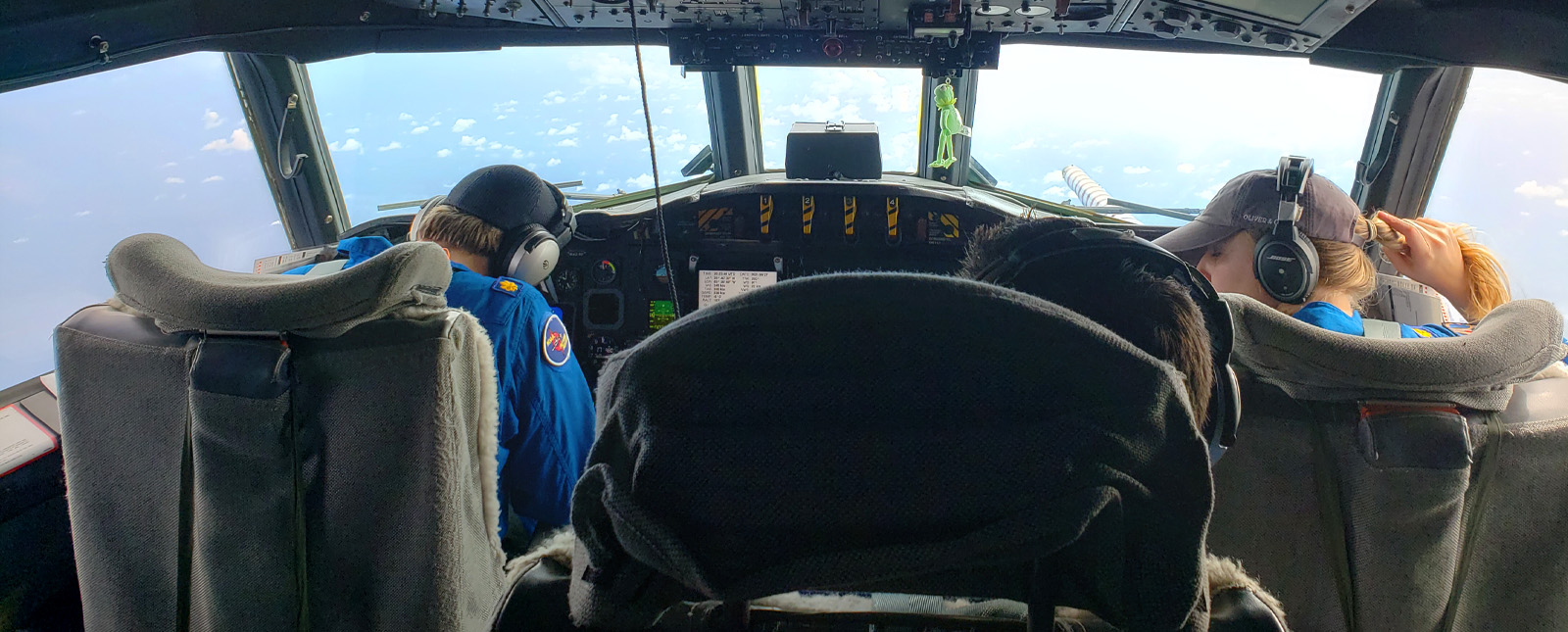Tech Innovation
Movement in the tech scene locally has created a context to drive greater innovation at the University. We are positioned to serve as a hub for innovation—to speed up and generate ideas for entrepreneurs and to create products that have the potential to improve lives.

When Alexander Leiva, Whitaker Redgate, and Benjamin Kling met as first-year students on the third floor of Eaton Residential College at the University of Miami, the three could never have imagined what lay ahead in their college careers. Today, the trio has co-founded a startup that combines drone technology with state-of-the-art sensors to collect survey-grade aerial images and data. Their company, Precision Ecology, provides digital surface and terrain maps that help individuals and organizations make sound ecological and land management decisions.

Four years into the XR Initiative, there are now more than 26 University courses that incorporate virtual and augmented reality into their curriculum, with eight more currently in design for the next calendar year. Whether by designing classes in the metaverse or bringing new ideas to life through the University’s Innovate team, our students, faculty, and staff use this immersive technology to drive learning and research. They continue to develop new ways to connect in a network of virtual worlds as a pathway for discovering solutions to current and future challenges.
When innovation, technology, and the humanities collide, the outcome can inspire ideas that change the way we interact with art, music, language, and each other. This fall, instructors in interactive media and vocal performance collaborated to utilize digital projection mapping to enhance the experience of “Opera Scenes.” The unique performance transported audience members through 13 different scenes, allowing them to envision firsthand what the stages might have looked like in a stained-glass cathedral in France, a Scottish castle, and hideaways throughout Italy.

Jason Dunion, an associate scientist at the University of Miami’s Cooperative Institute for Marine and Atmospheric Studies, led a 2022 hurricane field program that tests sophisticated aerial drones capable of flying at altitudes deemed unsafe for Hurricane Hunters and other reconnaissance aircraft. The radar’s clarity has helped take some of the guesswork out of storm forecasting, making a multitude of models better at predicting storm intensity.
A prolific scholar with more than two decades of teaching experience, Kathi Kern joined the University as the first vice provost for educational innovation. With a focus on experiential learning opportunities for students and helping faculty members elevate their teaching expertise, Kern will work to advance innovation across disciplines.


